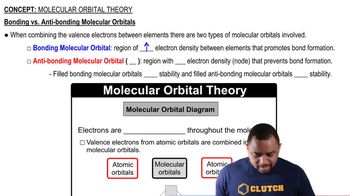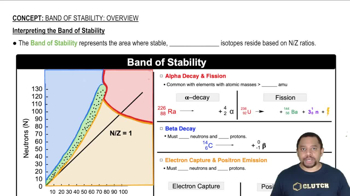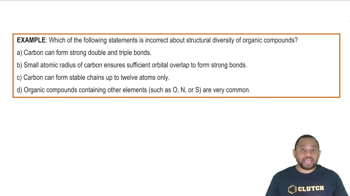Textbook Question
Draw a picture that shows all three 2p orbitals on one atom and all three 2p orbitals on another atom. (c) How many antibonding orbitals, and of what type can be made from the two sets of 2p orbitals?

 Verified step by step guidance
Verified step by step guidance



Draw a picture that shows all three 2p orbitals on one atom and all three 2p orbitals on another atom. (c) How many antibonding orbitals, and of what type can be made from the two sets of 2p orbitals?
Indicate whether each statement is true or false. (a) p orbitals can only make σ or σ* molecular orbitals.
Indicate whether each statement is true or false. (b) The probability is always 0% for finding an electron in an antibonding orbital.
Indicate whether each statement is true or false. (d) Electrons cannot occupy a nonbonding orbital.